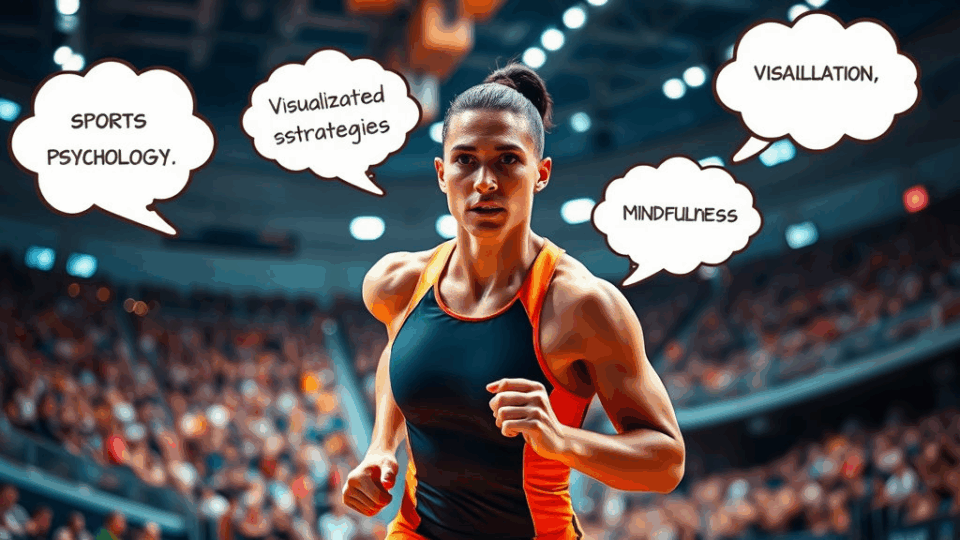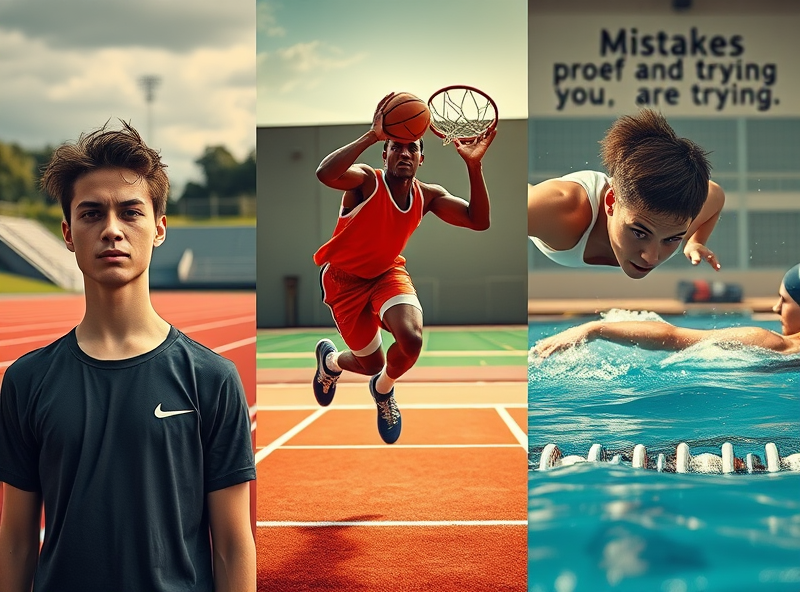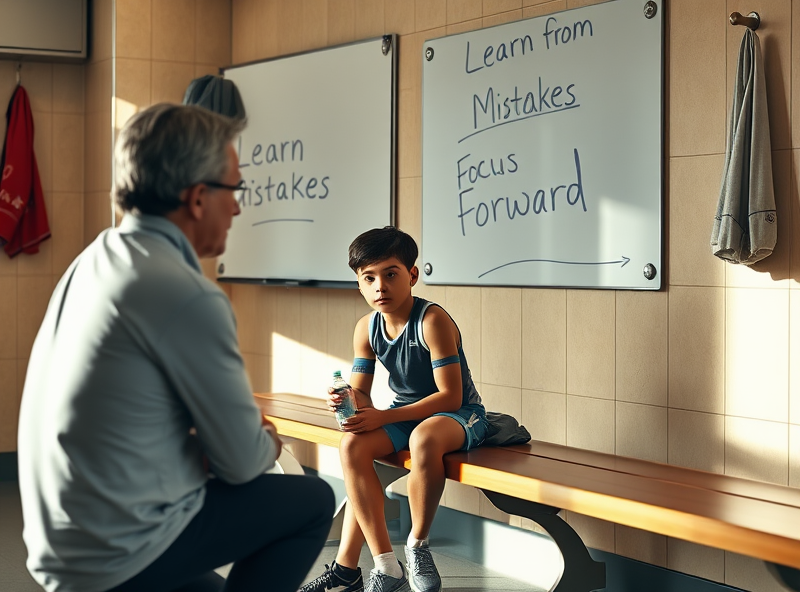
Mastering the Athlete Mindset with Sports Psychology
Core Theories: Self-efficacy, Flow, and Growth Mindset

To truly master the athlete mindset, it’s essential to understand the psychological foundations that drive peak performance. Three core theories—self-efficacy, flow, and growth mindset—can empower athletes not only to perform better but also to enjoy the journey of improvement.
Self-efficacy, a concept developed by psychologist Albert Bandura, refers to your belief in your ability to succeed in specific situations. For athletes, this means trusting in your training, preparation, and resilience. When you believe you can achieve a goal, you’re more likely to take the necessary steps to reach it. Boosting self-efficacy can be as simple as setting small, achievable goals and celebrating progress along the way.
Flow, often described as being “in the zone,” is a mental state where you’re fully immersed in an activity. Time seems to disappear, and your performance feels effortless. Achieving flow requires a balance between challenge and skill—when you’re pushed just enough to stay engaged but not overwhelmed. Athletes can cultivate flow by minimizing distractions, setting clear goals, and practicing mindfulness.
Finally, the growth mindset, introduced by Carol Dweck, is the belief that abilities can be developed through dedication and hard work. This mindset encourages athletes to view setbacks as opportunities to learn rather than signs of failure. Embracing a growth mindset fosters resilience, motivation, and a love for the process of improvement.
Together, these three theories create a powerful framework for mental strength. Whether you’re a professional athlete or just starting your fitness journey, nurturing self-efficacy, finding your flow, and adopting a growth mindset can transform not only your performance but also your perspective on challenges and success.
Mental Skills: Reframing Mistakes and Regaining Focus

In the world of sports—and in life—mistakes are inevitable. But what separates elite athletes from the rest is not the absence of errors, but how they respond to them. Mastering the athlete mindset means learning to reframe mistakes and regain focus quickly, and sports psychology offers powerful tools to help with this.
Reframing mistakes is all about changing your perspective. Instead of seeing a missed shot or a failed attempt as a personal failure, view it as valuable feedback. Ask yourself: What can I learn from this? How can I grow? This shift in mindset helps reduce self-criticism and keeps your confidence intact.
One effective technique is cognitive restructuring. This involves identifying negative thoughts and consciously replacing them with constructive ones. For example, instead of thinking, “I blew it,” you might say, “That didn’t go as planned, but I know what to adjust next time.”
Another key mental skill is regaining focus. After a mistake, it’s easy to dwell on what went wrong. But elite performers train themselves to return to the present moment. Techniques like deep breathing, mindfulness, and cue words (like “reset” or “next play”) can help redirect attention and maintain composure.
Practicing these skills regularly builds mental resilience. Whether you’re an athlete, a student, or a professional, learning to reframe setbacks and refocus your energy can dramatically improve your performance and well-being.
Remember, mistakes are not the end—they’re part of the journey. With the right mindset, every stumble becomes a stepping stone toward success.
Emotional Regulation and Concentration Strategies

In the world of sports, physical training is only half the battle. The other half? Mastering your mind. Emotional regulation and concentration are two key psychological skills that can make or break an athlete’s performance. Whether you’re a weekend warrior or a professional competitor, learning how to manage your emotions and sharpen your focus can significantly elevate your game—and your life.
Let’s start with emotional regulation. High-pressure moments are inevitable in sports. The ability to stay calm, composed, and positive under stress is what separates great athletes from good ones. Techniques like deep breathing, progressive muscle relaxation, and mindfulness meditation can help you stay grounded during intense moments. For example, taking a few deep breaths before a free throw or penalty kick can reset your nervous system and help you perform with clarity.
Next, let’s talk about concentration. In a world full of distractions, maintaining focus is a superpower. Athletes often use techniques like visualization, goal-setting, and self-talk to stay mentally locked in. Visualization involves mentally rehearsing your performance, which primes your brain for success. Positive self-talk—like saying “I’ve got this” or “Stay focused”—can reinforce confidence and block out negative thoughts.
By incorporating these strategies into your daily routine, you’re not just improving your athletic performance—you’re also building mental resilience that benefits all areas of life. Remember, the mind is a muscle too. With consistent practice, emotional regulation and concentration can become your strongest assets both on and off the field.
The Role of Sports Psychologists in Goal Redefinition

In the world of competitive sports, goals are everything. They drive performance, shape training, and fuel motivation. But what happens when an athlete hits a plateau, suffers an injury, or realizes their original goals no longer align with their values or capabilities? This is where sports psychologists play a transformative role—helping athletes redefine their goals in a way that supports long-term success and well-being.
Sports psychologists are trained to guide athletes through the mental and emotional aspects of goal setting and redefinition. They help athletes assess their current mindset, identify internal and external barriers, and reframe setbacks as opportunities for growth. Instead of viewing a change in goals as a failure, athletes learn to see it as a natural part of their evolving journey.
For example, an elite runner recovering from an injury might feel lost without their original performance targets. A sports psychologist can help them shift focus toward recovery milestones, mental resilience, or even mentoring younger athletes—goals that are still meaningful and fulfilling.
This process not only maintains motivation but also builds psychological flexibility, a key trait for high-performing athletes. Redefining goals with the help of a sports psychologist ensures that athletes stay connected to their purpose, adapt to change with grace, and continue to grow both on and off the field.
So whether you’re a weekend warrior or a professional competitor, remember: it’s okay to change your goals. With the right support, those changes can lead to even greater achievements.








답글 남기기